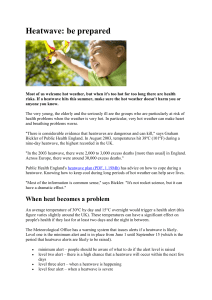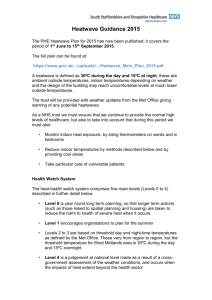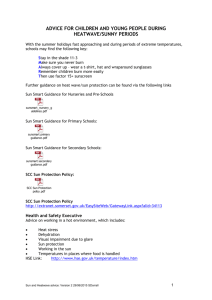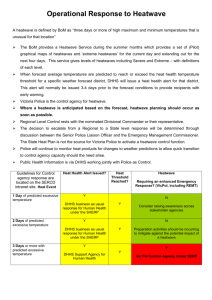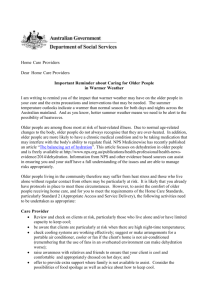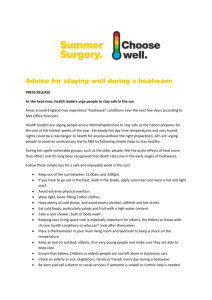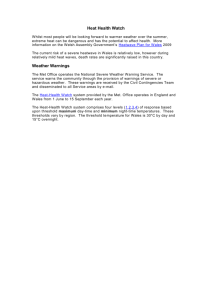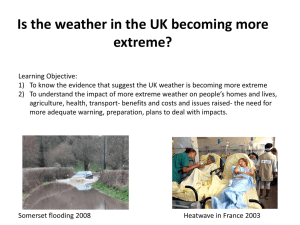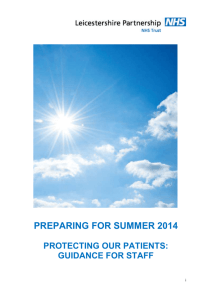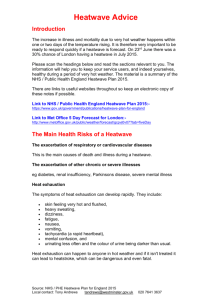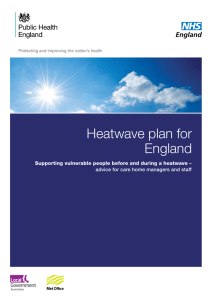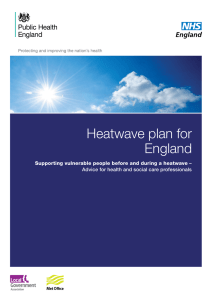Read our Newsletter - Old Station Surgery
advertisement
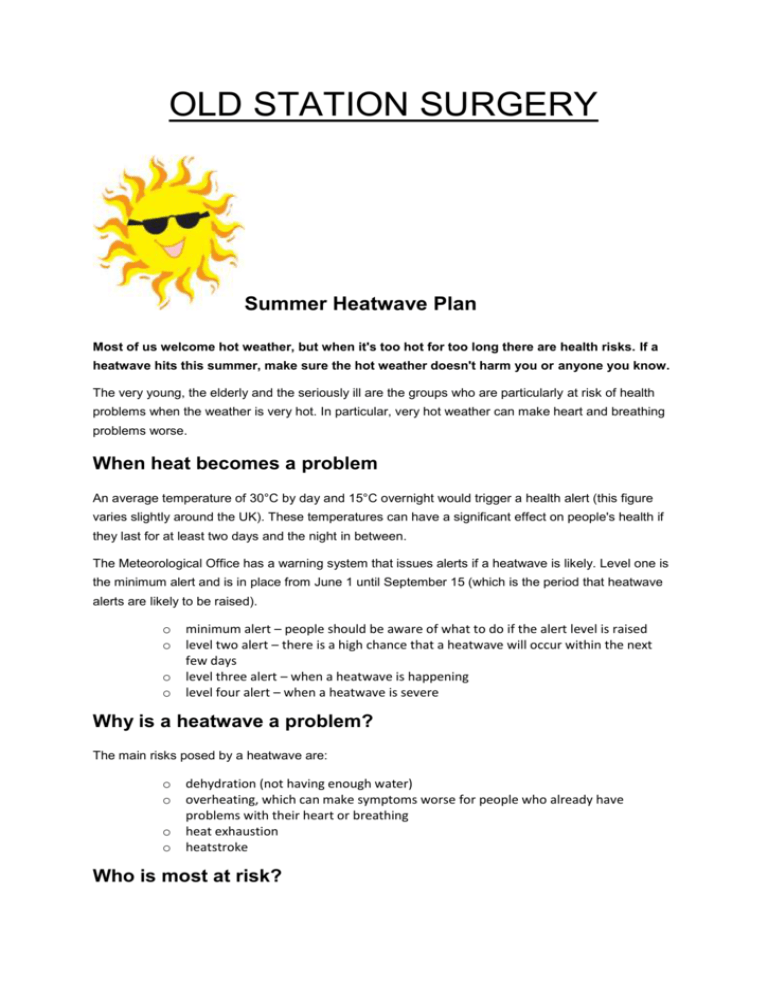
OLD STATION SURGERY Summer Heatwave Plan Most of us welcome hot weather, but when it's too hot for too long there are health risks. If a heatwave hits this summer, make sure the hot weather doesn't harm you or anyone you know. The very young, the elderly and the seriously ill are the groups who are particularly at risk of health problems when the weather is very hot. In particular, very hot weather can make heart and breathing problems worse. When heat becomes a problem An average temperature of 30°C by day and 15°C overnight would trigger a health alert (this figure varies slightly around the UK). These temperatures can have a significant effect on people's health if they last for at least two days and the night in between. The Meteorological Office has a warning system that issues alerts if a heatwave is likely. Level one is the minimum alert and is in place from June 1 until September 15 (which is the period that heatwave alerts are likely to be raised). o o o o minimum alert – people should be aware of what to do if the alert level is raised level two alert – there is a high chance that a heatwave will occur within the next few days level three alert – when a heatwave is happening level four alert – when a heatwave is severe Why is a heatwave a problem? The main risks posed by a heatwave are: o o o o dehydration (not having enough water) overheating, which can make symptoms worse for people who already have problems with their heart or breathing heat exhaustion heatstroke Who is most at risk? A heatwave can affect anyone, but the most vulnerable people in extreme heat are: o o o o o o o o older people, especially those over 75 babies and young children people with a serious chronic condition, especially heart or breathing problems people with mobility problems – for example, people with Parkinson's disease or who have had a stroke people with serious mental health problems people on certain medications, including those that affect sweating and temperature control people who misuse alcohol or drugs people who are physically active – for example, labourers or those doing sports Tips for coping in hot weather The following advice applies to everybody when it comes to keeping cool and comfortable and reducing health risks: o o o o o o o o o o o Shut windows and pull down the shades when it is hotter outside. If it's safe, open them for ventilation when it is cooler. Avoid the heat: stay out of the sun and don't go out between 11am and 3pm (the hottest part of the day) if you're vulnerable to the effects of heat. Keep rooms cool by using shades or reflective material outside the windows. If this isn't possible, use light-coloured curtains and keep them closed (metallic blinds and dark curtains can make the room hotter). Have cool baths or showers, and splash yourself with cool water. Drink cold drinks regularly, such as water and fruit juice. Avoid tea, coffee and alcohol. Stay tuned to the weather forecast on the radio or TV or met office web site. Plan ahead to make sure you have enough supplies, such as food, water and any medications you need. Identify the coolest room in the house so you know where to go to keep cool. Wear loose, cool clothing and a hat if you go outdoors. Check up on friends, relatives and neighbours who may be less able to look after themselves. If you're worried about yourself or a vulnerable neighbour, friend or relative, you can contact the local environmental health office at your local authority. Environmental health workers can visit a home to inspect it for hazards to health, including excess heat. Find your local authority on the GOV.UK website. How do I know if someone needs help? If someone feels unwell, get them somewhere cool to rest. Give them plenty of fluids to drink. Seek medical help if symptoms such as breathlessness, chest pain, confusion, weakness, dizziness or cramps get worse or don't go away.
